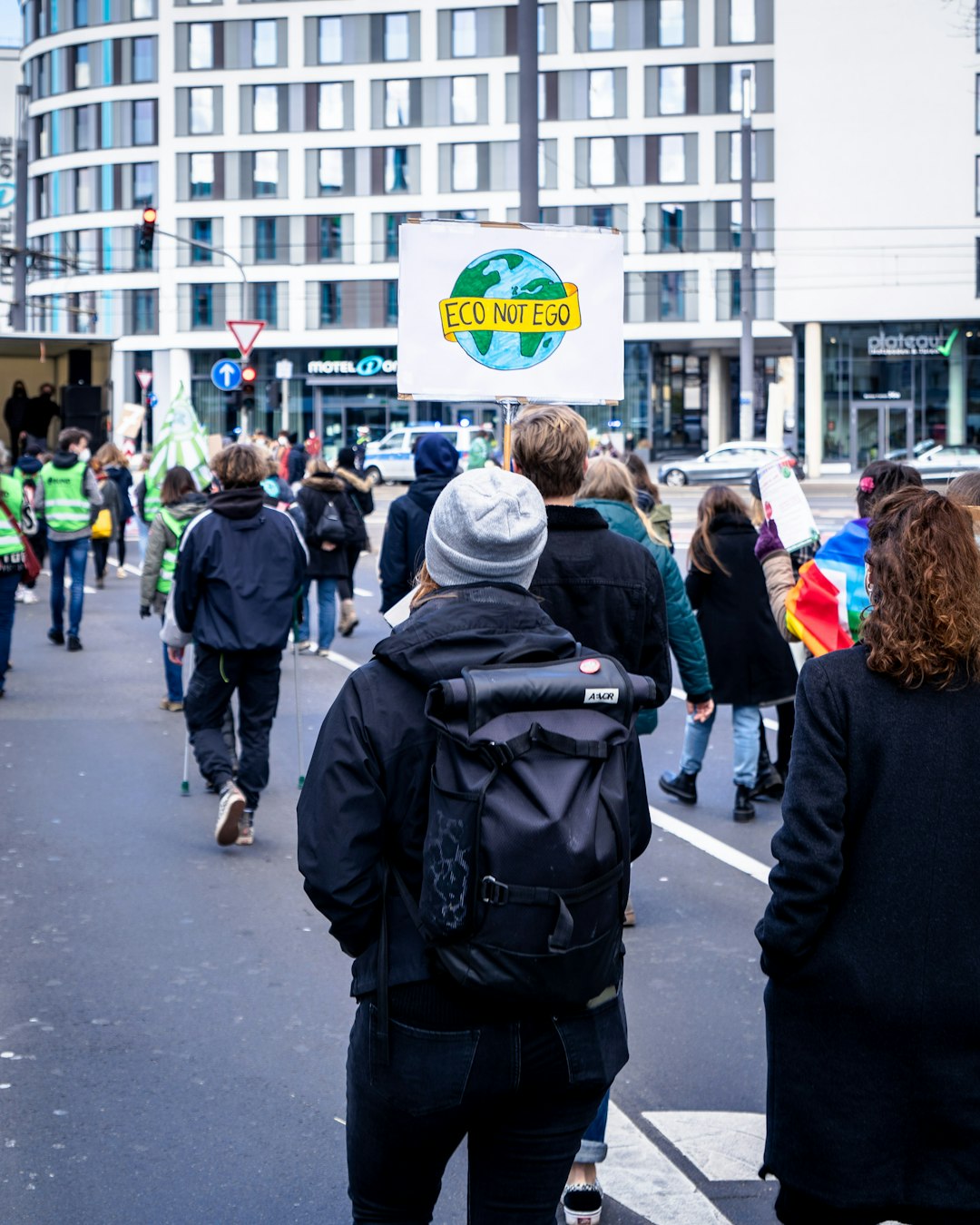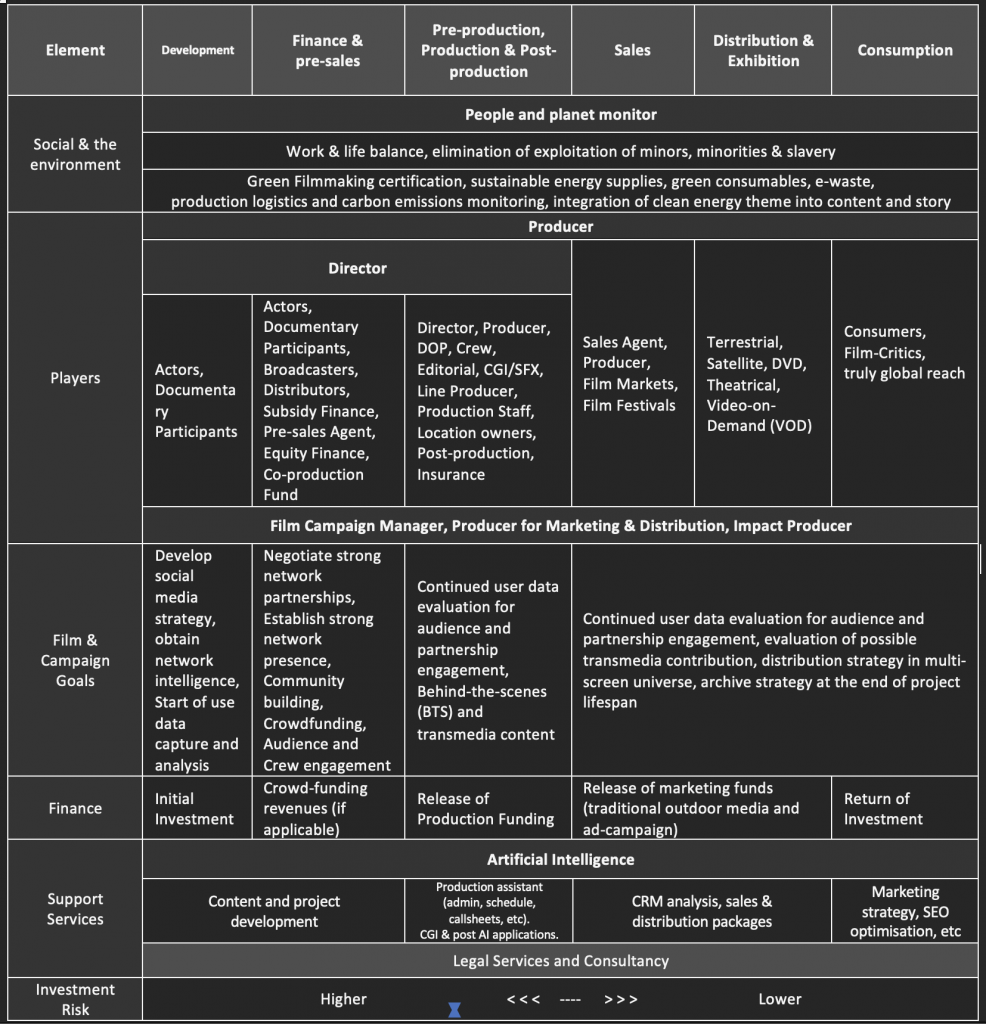Sustainability is the sincere wish to minimise harm to the environment and everything that lives within to so that it continues to provide for us.
This is based on the understanding harm cannot avoided by existing in this world, but that it can be minimised to be sustainable.

Sustainability is a life style option without which our world is headed for a major climate catastrophe if we do not act now. It is already too late to keep climate change below 1,5 Celsius, it is more likely that planet Earth will see temperature rise between 2-3 Celsius. The lives of millions of people around the planet will be affected even if we manage to stay just below 1,5 Celsius. Filmmakers have been developing ‘green filmmaking’ practices over the last decade. There are a number of ways to approach this problem. The film production value chain provides a strategic overview:

Notice the Green Filmmaking element at the top of the table and a new position: the People and Planet monitor. I can hear producers sigh: another role, and more expenses. And yes, going carbon neutral or even better carbon positive will cost money. Reversing the damage we have caused to the planet does not come for free. There is a cost to it and it cannot be avoided.
This overview is not just concerned with Green Filmmaking Practices. Social aspects are also included: work & life balance, elimination of exploitation of minors, minorities & slavery. While the impeding climate catastrophe is making headlines, social issues are neglected. For example, The Washington Times reported that Apple is still using slave-labour in China to produce parts of their computers.
Filmmakers have a responsibility to protect the environment, but also the people on this planet. Does that mean you should stop buying apple products? That is up to you to decide. But you can definitely let Apple know what you think about their practices.
This updated version expands support services to include AI technologies as well.
For Green Film Making practices and resources go here.


